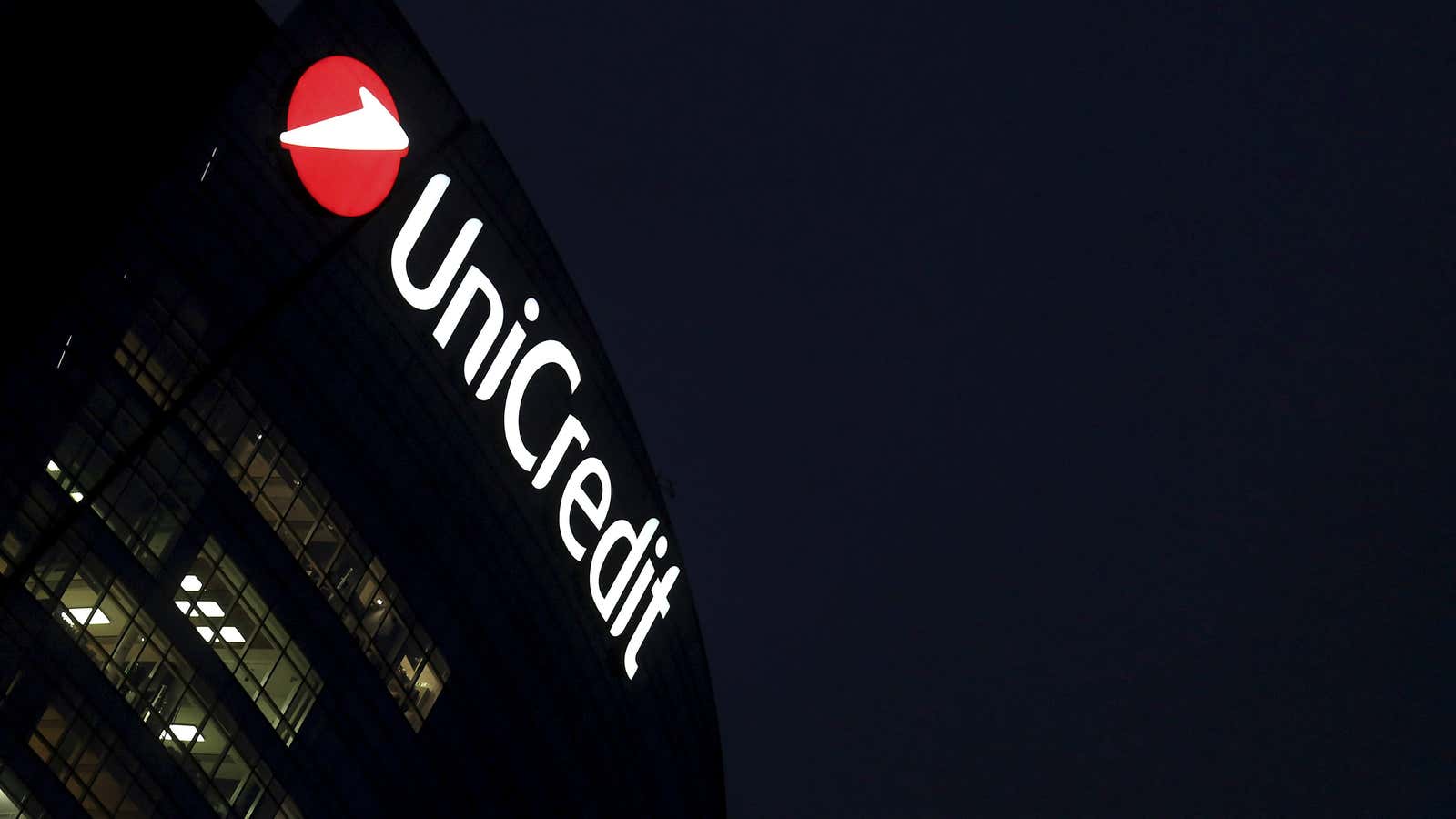For Italian banks, bad news is good news.
UniCredit, the country’s largest bank, unveiled an aggressive three-year restructuring plan today, featuring 14,000 job cuts, nearly 1,000 branch closures, and sour-loan selloffs at deep discounts.
The bank’s share price surged by more than 15% following the news.
Italian banks are weighed down by some €350 billion ($372 billion) in bad loans, which they are struggling to service in a stagnant economy. UniCredit believes its turnaround plan, which includes the sale of nearly €18 billion non-performing loans to (brave) financial investors, will put it on track to generate a €5 billion profit by 2019, a level it last achieved before the global financial crisis.
Key to this are the staff cuts—accounting for 11% of the bank’s 123,000 employees—which will save €1.1 billion in costs, the bulk of a €1.7 billion overall cost-cutting target. Like other banks, UniCredit will invest a chunk of the savings from the job cuts and branch closures in technology, aiming to automate services previously provided by people.
UniCredit will also bolster its balance sheet by raising a whopping €13 billion via new shares. This is incredibly ambitious, considering the bank’s total market capitalization is only €16 billion. The bank is raising additional funds by selling off business units, including asset management firm Pioneer for €3.6 billion and its stake in Polish bank Pekao for the equivalent of €2.4 billion.
The bank’s CEO, Jean Pierre Mustier, said its plan was “conservative” with “achievable” targets. The eye-catching numbers don’t exactly bring “conservative” to mind, but investors appear to believe him on the “achievable” part, despite the costs involved. (UniCredit expects to record a €12.2 billion restructuring charge this quarter.)
The big bank’s shares helped to push the entire Italian stock market by more than its regional peers today. Still, even after today’s rally, UniCredit has lost nearly €15 billion in market cap so far this year, a sign of how down investors have been on Italian banks.
UniCredit is one of Italy’s healthier banks, if you can believe it. The sickest, Banca Monte dei Paschi di Siena, was denied extra time last week to raise the €5 billion it urgently needs to recapitalize by the European Central Bank. Trading in its shares has been suspended in the meantime. Many believe it needs a state bailout to survive.
This will make life difficult for Italy’s new prime minister, Paolo Gentiloni. He was tapped this week for the post after Matteo Renzi resigned following a lost referendum on constitutional reforms. Gentiloni is the country’s sixth prime minister in 10 years and, like many of his recent predecessors, he must deal with a teetering banking system. UniCredit’s actions today may lighten the load, but there is much heavy lifting ahead. In bocca al lupo!
